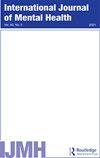越南的心理健康:一篇介绍性社论
IF 1.7
Q3 PSYCHOLOGY, CLINICAL
引用次数: 0
摘要
2020年是全球非常艰难的一年,在我们写这篇社论的时候,这种经历还在继续。COVID-19大流行及其在全球范围内造成的限制给我们所有人带来了最好和最坏的结果,包括调动公共卫生资源,在开发新型疫苗方面开展国际合作,以及我们都可以“团结一致”的团队精神。与此同时,恐惧和不确定性加剧了已经很深的种族分歧,这一点从美国继续无视黑人的生命和反亚洲情绪的上升就可以看出,这是由于与COVID-19相关的替罪羊。然而,正如由此产生的种族觉醒和起义所看到的那样,这一综合征也有一线希望,这表明需要提高对BIPOC(黑人、土著、有色人种)的复杂性和异质性的认识,以及BIPOC之间团结一致反对世界范围内白人至上主义、殖民主义和帝国主义历史的必要性。我们致力于这场革命;作为一本关注全球心理健康问题的杂志,我们的使命之一是强调和放大传统上没有被听到的声音。越南是一个历史上深受西方帝国主义影响的国家。经历过多次血腥战争的越南,已成为一个不断发展、繁荣的国家,并将自己的观点带到了全球舞台上。尽管迄今为止,许多关于心理健康的科学文献都集中在越南侨民和战争对其人民的影响上,但关于越南自身心理健康的文献却少之又少。在本期中,我们提出了三篇关于越南目前心理健康的论文:一项研究调查了高中资优生中压力、应对策略的普遍性及其相关性(Thai等人,2021),另一项研究描述了越南大学生的心理健康服务利用情况,并检查了相关因素(Pham Tien等人,2021),第三项研究确定了河内农村地区老年人中抑郁症的普遍性和获得心理服务的感知障碍(Nguyen Hang Nguyet等人,2021)。通过关注两代人,关注年轻人和老年人的富裕和韧性,这些文章是对这个充满活力的国家的心理健康的罕见一瞥,在经历了几个世纪的冲突和殖民之后,这个国家本身也很有韧性。我们鼓励读者将《国际心理健康杂志》视为一个突出全球心理健康研究的平台,有时来自以前被忽视的全球角落。最终,这丰富了我们所有人的科学、政治和社会对话。本文章由计算机程序翻译,如有差异,请以英文原文为准。
Mental health in Vietnam: An introductory editorial
2020 has been a very difficult year worldwide, and the experience continues as we write this editorial. The COVID-19 pandemic and the resulting restriction worldwide has brought about the best and worst in all of us, including mobilization of public health resources, international cooperation in development of novel vaccines, and an esprit de corps that we can all be “Together Apart.” At the same time, fear and uncertainty has stoked already deep racial divisions, as seen by the continued disregard of Black lives and the rise of anti-Asian sentiment as a result of COVID-19 related scapegoating in the United States. However, this syndemic also has a silver lining, as seen by the resultant racial awakenings and uprisings, which bring to light the need for increased awareness of both the recognition of the complexity and heterogeneity of BIPOC (Black, Indigenous, People of Color), as well as the need for solidarity among BIPOC to fight the history of white supremacy, colonialism, and imperialism worldwide. We are committed to this revolution; as a journal focusing on global mental health issues, one of our missions is to highlight and amplify voices that have not traditionally been heard. Vietnam is one country that has been deeply affected by Western imperialism throughout its history. The scene of many bloody wars, Vietnam has emerged as a growing, prosperous nation, one which has brought its own perspective to the global stage. Although much of scientific mental health literature to date focuses on the Vietnamese diaspora and the after-effects of the war on its peoples, much less has been published on mental health in Vietnam itself. In the present issue, we present three papers focusing on mental health currently in Vietnam: one study investigates the prevalence of stress, coping strategies, and their association in high school gifted students (Thai et al., 2021), another describes the mental health service utilization and examine associated factors among university students in Vietnam (Pham Tien et al., 2021), and a third identifies the prevalence of depression and perceived barriers to accessing psychological services among the elderly people in a rural district in Hanoi (Nguyen Hang Nguyet et al., 2021). By focusing on two ends of its generations, both on the richness and resilience of its youth, as well as its elderly, these articles are a rare glimpse into mental health in this vibrant country, itself resilient after centuries of conflict and colonialization. We encourage our readership to consider International Journal of Mental Health as a platform to highlight mental health research globally, sometimes from corners of the globe that have previously been overlooked. Ultimately, this enriches the scientific, political, and social dialogue for us all.
求助全文
通过发布文献求助,成功后即可免费获取论文全文。
去求助
来源期刊

INTERNATIONAL JOURNAL OF MENTAL HEALTH
PSYCHOLOGY, CLINICAL-
CiteScore
3.80
自引率
20.00%
发文量
32
期刊介绍:
The official journal of the World Association for Psychosocial Rehabilitation, the International Journal of Mental Health features in-depth articles on research, clinical practice, and the organization and delivery of mental health services around the world. Covering both developed and developing countries, it provides vital information on important new ideas and trends in community mental health, social psychiatry, psychiatric epidemiology, prevention, treatment, and psychosocial rehabilitation.
 求助内容:
求助内容: 应助结果提醒方式:
应助结果提醒方式:


